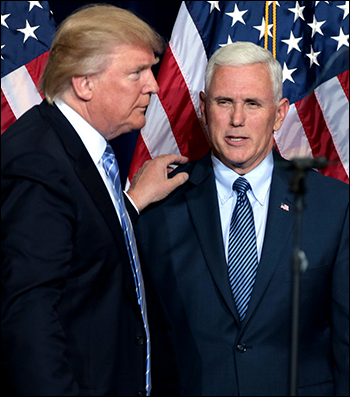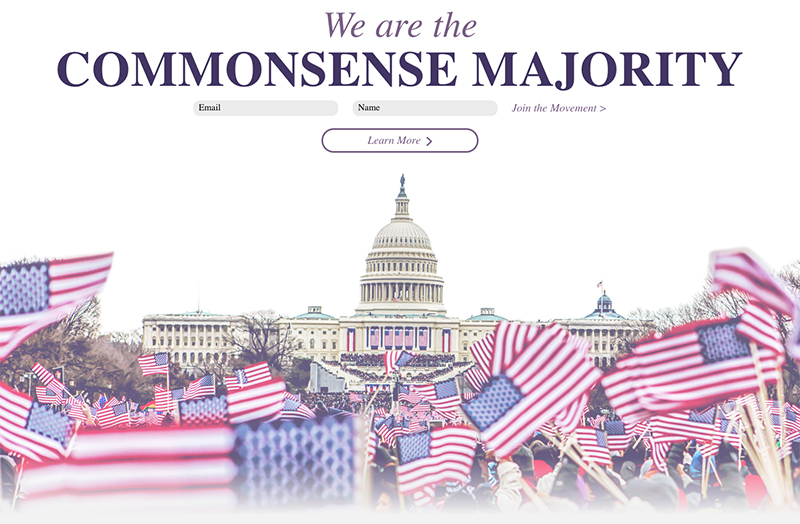By Jim Ellis — Tuesday, Jan. 2, 2024
President

Former President Donald Trump / Photo by Gage Skidmore
Another poll, this from St. Anselm College (Dec. 18-19; 1,711 likely New Hampshire voters; online), sees Trump posting 44 percent support while Haley trails at 30 percent, and former New Jersey Gov. Chris Christie follows with 12 percent. Under New Hampshire procedure, non-affiliated voters can vote in a partisan primary, and this plays a major factor in the support numbers for both Haley and Christie.
House
AZ-8: Masters Trailing in New House Poll — It was a good political end of year for former Arizona US Senate nominee Blake Masters (R). First, former President Trump endorsed one of his chief opponents, 2022 attorney general nominee Abe Hamadeh (R), and a new National Public Affairs survey was released that showed Masters trailing badly in an early battle test.
According to the poll (Dec. 16-17; 418 likely AZ-8 Republican primary voters; live interview & text) Hamadeh, who lost his statewide race by only 280 cast ballots, leads this open congressional GOP primary, 37-14 percent over Masters. State House Speaker Ben Toma (R-Peoria) and former Congressman Trent Franks trail with seven and six percent, respectively.
The Arizona primary is not until Aug. 6, so plenty of time remains for this race to change. Incumbent Rep. Debbie Lesko (R-Peoria) is retiring.
NJ-7: Dem Primary Battle Lines Being Drawn — A major Democratic primary battle is brewing over who will have the opportunity of challenging freshman Rep. Tom Kean Jr. (R-Westfield). The Congressional Progressive Caucus endorsed political organizer Sue Altman in her quest to win the party nomination, while the more centrist New Democrat Coalition is backing former State Department official Jason Blazakis. A third Democrat, Summit City Council President Greg Vartan, is also an announced candidate.
The 7th District race will be a major battleground campaign this year. The FiveThirtyEight data organization rates the seat as R+3, while Dave’s Redistricting App calculates a 51.5R – 46.5D partisan lean. The Daily Kos Elections site ranks the seat as the 16th most vulnerable seat in the Republican Conference. Former Rep. Tom Malinowski (D), who Kean unseated in 2022, is unlikely to run again. He is testing the waters to enter the US Senate contest.
States
Ohio: Candidate Filing Closes — The Ohio candidate filing deadline passed for the 2024 election in preparation for the state’s March 19 plurality primary. The US Senate Republican primary race will feature, as has been the case for months, Secretary of State Frank LaRose, state Sen. Matt Dolan (R-Chagrin Falls), and businessman Bernie Moreno. Only one other minor candidate is in the mix. The preponderance of polling suggests a close three-way race. The winner will challenge Sen. Sherrod Brown (D) in what promises to be one of the most important Senate races in the country.
The most competitive House primary is again in the state’s 9th District where the Republican winner will face veteran Rep. Marcy Kaptur (D-Toledo). At the last moment, a new entry, state Rep. Derek Merrin (R-Monclova Township) entered the race, challenging former state Rep. Craig Riedel, Napoleon Mayor Steve Lankenau, and 2022 congressional nominee J.R. Majewski.
Majewski proved a poor general election candidate, and with Merrin now in the race to challenge the others, the outcome of the future primary could be the same as the one in the immediate past. That is, Majewski takes advantage of a split vote, captures the party nomination but then loses to Rep. Kaptur.
With a FiveThirtyEight rating of R+6, losing here again because of a botched primary will greatly diminish the Republicans’ chances of keeping the House majority. In the competitive 1st District, the general election match between freshman Rep. Greg Landsman (D-Cincinnati) and attorney Orlando Sonza (R) appears set.
Other congressional primaries in both parties feature several races with multiple candidates, but mostly they are in districts where the incumbent will again score an easy win.






